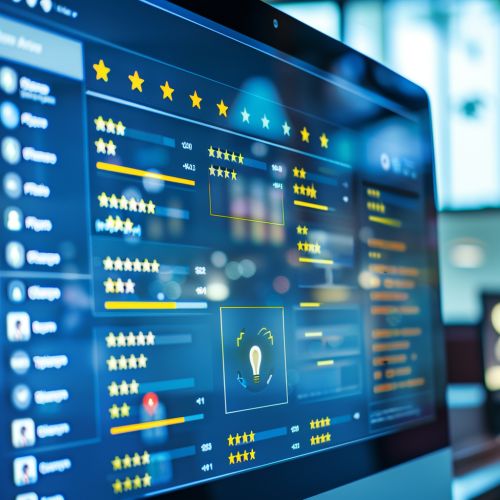Online reputation
Overview
Online reputation refers to the perception of a brand, individual, or entity on the internet. It is a critical aspect of digital identity, which can significantly influence personal, professional, and business outcomes. The concept of online reputation is closely tied to online identity, reputation management, digital marketing, and cyberpsychology.


Evolution of Online Reputation
The concept of online reputation has evolved with the advent of the internet and digital technologies. Initially, online reputation was a simple extension of offline reputation, where individuals and businesses used the internet as a platform to showcase their achievements and credentials. However, with the proliferation of social media, online review sites, and user-generated content, online reputation has become a dynamic and complex phenomenon.
Importance of Online Reputation
Online reputation plays a crucial role in shaping perceptions and influencing decisions. For individuals, a positive online reputation can enhance career prospects, social standing, and personal relationships. For businesses, it can drive customer trust, brand loyalty, and financial performance. Conversely, a negative online reputation can lead to significant personal and professional setbacks.
Factors Influencing Online Reputation
Several factors can influence online reputation, including the quality and quantity of online content associated with an individual or entity, the visibility of this content in search engine results, and the sentiment of online reviews and social media comments. Other factors include the individual or entity's online behavior, the credibility of their online connections, and the frequency and recency of their online activity.
Online Reputation Management
Online reputation management (ORM) is a strategic approach to monitoring, influencing, and improving an individual or entity's online reputation. ORM involves a range of tactics, from search engine optimization (SEO) to improve the visibility of positive content, to crisis management to mitigate the impact of negative content. ORM also includes proactive measures to build a robust and resilient online reputation, such as creating high-quality, authentic content and engaging positively with online communities.
Challenges in Online Reputation Management
Despite its importance, managing online reputation can be challenging. The internet is a vast and complex ecosystem, where information can spread rapidly and unpredictably. Furthermore, the anonymity of the internet can enable malicious activities, such as cyberbullying, online shaming, and defamation, which can severely damage online reputation. Another challenge is the permanence of online content, which can make it difficult to recover from a damaged online reputation.
Future of Online Reputation
The future of online reputation is likely to be shaped by advances in technology, changes in online behavior, and evolving societal norms. Emerging technologies, such as artificial intelligence and blockchain, could potentially revolutionize the way online reputation is managed. For example, AI could be used to automate the monitoring and management of online reputation, while blockchain could provide a decentralized and transparent platform for verifying online identities and reputations.
